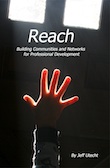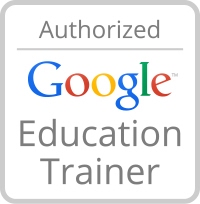Thought-Provoking Presentations
Getting Social with Students
Let’s face it, kids are social and they want to connect! They want to connect with each other, with their teachers, with their school at large. This will be a discussion on the use of social-networking tools with student bodies to engage them in learning, foster school spirit, and just have fun! We take a look at how some schools are using social-networks to communicate with students as well as the school community at large. Come with ideas to share, questions on how to get started, and be ready to take a look at social-networks through the eyes of kids today.
Building Student Centered Blended Learning Environments
The latest statistics out of the U.S. show that 80% of college freshmen will take at least one online course. Most of these classes will be in the form of a “blended classroom” meaning that time will be spent both in a traditional classroom and online. This institute will focus on creating a blended classroom for learning. We will discuss how pedagogy changes within a blended classroom environment and how true student-centered learning is created with technology. As part of this workshop, we will look at ways to manage your virtual classroom and create a plan on how you can incorporate it into your every day teaching and make it just what you do. Teaching in a blended classroom is not about knowing technology, it is about having a mind set of allowing students to take control of the content and helping them to make meaning and create knowledge from it in multiple forms, styles, and media.
The Changing Nature of Communication
Being a leader in the 21st Century means going beyond e-mail and newsletters into the new digital world of communicating with parents and students. Understanding that society today wants information in short and more frequent bursts is the first step in utilizing tools that allow you to communicate using the new web. This presentation demonstrates and discusses the different ways schools and school leaders can harness the power of the Internet to communicate with their school communities.
Beyond E-mail: Communication with Your Web Community (Admin)
From Friday Folders to Friday e-mails, the way we communicate with our school community is changing. But where do we go now from e-mail and how can we utilize the power of social web tools, such as Facebook/Twitter/Instagram, to create communities that engage and support our schools? This session will share ways to harness these web tools to reach out to your school community and create authentic and open communications within them.
Moving from Consumers to Producers of Knowledge
Content is free, production of knowledge is at an all time high. How do schools take advantage of the productive power of the web? How can schools engage students in meaningful projects that focus on creativity and apply the content students are learning? This session will be a discussion on how to move schools, classrooms, and students from consumers to producers of knowledge.
A New Learning Landscape
It’s not just our schools that are changing, it’s society as a whole. A new learning landscape is emerging. A landscape of global education. What does this mean for our schools, our students, and communities? This presentation looks towards the future and what awaits today’s students.
Students as Creators and Contributors
New web tools have changed the way we interact with the web. In an old web world we used the Internet to gather information, to find answers, and absorb information. There was not an easy way for the average person to contribute to this landscape of knowledge. As the 21st century is upon us so is a new web. The new web other wise known as the read/write web allows us not only to easily find information, but allows us to be creators and contributors to this new wealth of knowledge. As education has been slow to adapt to these new tools our students have taken them to heart and are using them to create content viewed the world over. Sites such as Facebook, YouTube, Twitter, Instagram, Vine, and others allow our students to create information. Our students no longer want to sit in a classroom and be told information. They want to create it, share it, and contribute to the growing knowledge base on the web.
The New Learning Experience: Taking advantage of the Information Age
Society is changing, we are more connected than we have ever been in the history of mankind. We are producing more content, sharing more ideas, and learning at a pace never before seen. This workshop will look at our changing global society, changing universities, and how teachers can take advantage of the wealth of knowledge in their classrooms. Recent research shows that today’s students fall into what is called the 1-9-90 rule. That is that only 1% of students are actively creating content, 9% know how to curate digital information, while 90% of this current generation only consume digital information. What are schools doing to encourage students to be creators of content and not just consumers of information? We will focus the day on looking at everything from how we can have students create their own core text for a class to creating digital maps to make sense of their world. We will explore new approaches to learning within the connected classroom as well as how educators can move from a Pedagogical approach to a Heutagogical approach to learning within their classrooms. Participants will have time to explore, learn, discuss and walk away ready to take advantage of the information age in their classroom. This workshop will focus on the essential question: What skills need to be replaced in our schools to ensure we are preparing students for their future not our past?
Theory Based Presentations
Flipping Your Classroom (Reverse Instruction): Getting Started with the Flip
When content is free and accessible to students anywhere and anytime how do we flip the instruction in our classroom to take advantage of anywhere anytime learning? This workshop will discuss the pedagogy behind reverse instruction along with examples of how teachers are flipping their classrooms to take advantage of the web and the resources it has to offer. This is not about video creation or having students passively watch a lecture. This is about engaging students in the learning process. Walk away with strategies you can start using tomorrow in your own classroom.
Looking for Learning in the Digital Classroom (Admin)
Just because the laptops are open does that mean learning is occurring? We need to move beyond doing old activities in new ways to doing whole new activities that lead to deeper more meaningful learning. This session will help administrators learn what to look for in the digital classroom. Using new theories and new standards, administrators will walk away with a greater understanding of how digital tools change the learning landscape and allow for authentic learning experiences.
Tools Based Presentations
Moving From Sorting to Searching
There was a time not to long ago when we taught students how to sort and organize their files. How to create folders inside of folders and basically do what we do in the physical world to our digital life. Then came the Internet and its endless websites. We tried to organize them but at last there were to many. So we turned to something different….we stopped trying to organize the web and we started searching it. Search is the skill of our era, a life skill that once mastered opens up all sorts of opportunities. Do we teach search in your classrooms and schools? This session will focus on the skills and strategies of search. Participants will walk away with K-12 lesson plans, ideas and classroom routines they can start using tomorrow in their classroom to teach students the skill needed most in today’s connected world. The skill of search.
My Wikipedia is better than your textbook
Research at the end of 2013 shows that not only is Wikipedia better than any other Encyclopedia but that now’s it’s even more relevant than your textbook. Come explore the real learning possibilities that Wikipedia has to offer and why we need to be teaching every student how to use it properly.
Google Apps in the Classroom
This session will focus on using Google Apps in the classroom with students 3rd – 12th grade. This free educational service encompasses a powerful set of tools that is revolutionizing education. Combining these tools with other free Google products like Google Maps and Google Earth only enhances the learning for students.
We will go hands-on with real lessons being used in classrooms right now as we discuss how Google Apps changes the learning environment. From science notebooks, to collaborative notes and classroom newspapers we’ll get our hands dirty with what these powerful tools have to offer. Participants will need a Google Account.
(Jeff is a Google Certified Trainer)
Starting your Online Personal Learning Network
This workshop will focus on helping teachers understand and create their Personal Learning Network (PLN). From RSS Feeds, to Twitter, FriendFeed, and Blogs. This workshop will get you started and connected into the most powerful professional learning community online today.
I Don’t Get Twitter!
What’s all this Twitter about? Why should I care? I don’t get it? What’s all the fuss? I’ve asked myself these same questions. This presentation looks to discuss Twitter and all it has to offer educators and students.


